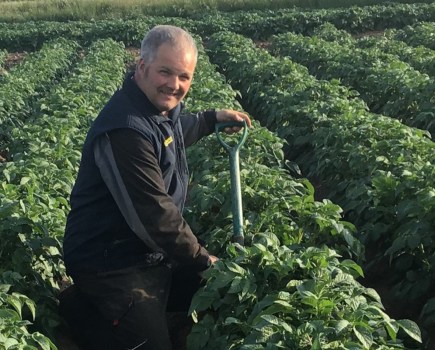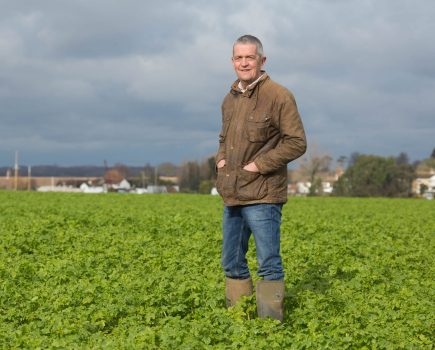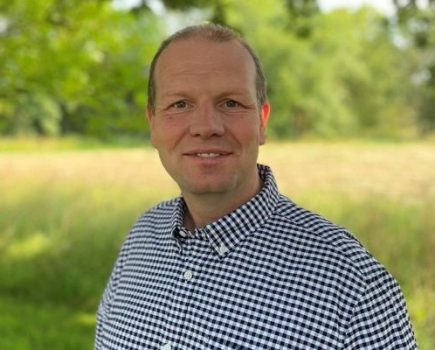 By Lucy de la Pasture
By Lucy de la Pasture
As I write this at the end of August, the Robin has already changed its song – forever associated with that ‘going back to school’ feeling at the end of summer. Some of the swallows have already left but some are still here, livening up the shed with their endless cheerful chatter. Canada geese, the earliest of risers, are honking overhead as they journey to winter quarters. And the nights have started to draw in rapidly, with the sharper turn from twilight to darkness which comes with the turn in the seasons.
While some love the seasonal change, I really struggle with it. The short days in November and December are the absolute pits and even though the weather is often grim in the New Year, every day pulls out a little and it’s the thought that Spring is getting a little closer that helps me through. Then the snowdrops brave the chill, closely followed by crocuses, daffs, primroses and violets. Things are looking up. Slowly, the Willow stems begin to take on a hint of green. And then it’s really happy days when the first swallows return, the cuckoo starts to call and Chiff Chaff’s pipe away nosily.
It’s these sorts of markers which characterise the rhythm of the Earth to us country folk. But what do we know? The constant onslaught by some environmental campaigners against the farming fraternity is really quite depressing. Studying something is never the same as living it – we all know boffins who don’t have a clue. Being divisive is probably the least constructive thing anyone seeking positive change can do. Alienating those that can make those changes is downright stupidity. I have little doubt that there is much to be learnt on both sides of the fence, that sometimes agreeing to disagree is the best course of action, a willingness to seek common ground means dialogue and through that, respect for each other’s opinion even if they don’t coincide. It means that where there is agreement then there can be progress. These qualities mark the great campaigners, the ones that can take people with them…
Meanwhile, while the lambasting continues, lots of farmers are just getting on with making positive gains for nature. It’s one of the reasons Rawcliffe Bridge is so interesting. There’s nothing fluffy about the farming on the fertile soils there – these soils are enviable. Here there’s a laser focus on productivity. But there is plenty of ‘fluff’ round the edges and that’s where nature has found a home and is thriving. It has found a balance where food production and biodiversity can coexist without detriment to one another.
That’s not to say sustainable intensification is the right answer everywhere. On less productive land where costs of production are high then it makes sense to put it to other uses, but they need to be the right ones! To me, there’s a huge trick being missed in the design of ELMs. The right habitats have to be created in the right places and there is no grand plan for this. There is no surveying of biodiversity to establish what’s where and, more importantly, what’s missing from places where particular species probably should be, so that habitats can be built in the hope they will come. There is no identifying of corridors and where these are disconnected. It’s like doing something for the sake of it but with out a grand design for the what the recovery is that’s being sought and where it should be. There is no connectivity.
It’s farmers with a keen interest that will make these differences – not rewilders or, dare I say, very vocal campaigners. It’s farmers. So don’t let the buggers get you down.
But sometimes it’s hard not to feel the world is against you. This year already feels like a re-run of the 1970s as we’re seemingly heading into another winter of discontent. As well as mass industrial action, soaring inflation and increasing interest rates, there’s a cost-of-living crisis, a war in Europe and a return of the Cold War era – we grew up under the cloud of that omnipresent nuclear threat. This morning (as I write) the new energy price cap was announced, with an 80% increase in cost from 1 October, and the promise of more increases in January and April. It’s going to be a struggle for many of us and a disaster for some – businesses and households alike. I can rarely remember a time when everything felt quite so uncertain.
There are many, many things at the moment that can adversely affect your mental health. Uncontrollables, by their very nature, create stress and a feeling of being overwhelmed. Farming has always faced its fair share of uncontrollable factors but, right now, the stakes are enormously high. Input costs don’t look like coming down anytime soon (if you can get them) and what will happen with grain prices is anybody’s guess. And where one wins, another loses – livestock and poultry aren’t going to be cheap to keep this winter, with the price of feed and winter feedstocks already depleted due to the drought…
It’s never been more important to stick together and support one another. It’s not a failure to feel under pressure and even less of a failure to not know how to handle it. That old saying, a problem shared is a problem halved is so true and if you can’t talk about how you feel, then write it down. Believe me, it helps to just ‘get it out’. Reach out because there are plenty of willing hands to support you.
This article was taken from the latest issue of CPM. For more articles like this, subscribe here.




